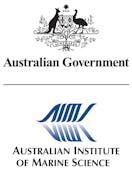
Australian Institute of Marine Science

The Australian Institute of Marine Science (AIMS) is a leader in tropical marine science.
The Institute is consistently ranked among the top one per cent of specialist research institutions internationally and is known for its unique capacity to investigate topics from broad-scale ecology to microbiology.
AIMS is committed to the protection and sustainable use of Australia’s marine resources. Its research programs support the management of tropical marine environments around the world, with a primary focus on the Great Barrier Reef World Heritage Area, the pristine Ningaloo Marine Park in Western Australia and northwest Australia.
Links
Displaying 21 - 34 of 34 articles

How you tell one whale shark from another? Spots and stripes.

Marine parks need to cover large swathes of ocean, but they also need to cover the right areas if they are to deliver the best conservation. New research off Australia’s northwest suggests how.

Bleaching has hit a huge swathe of the Great Barrier Reef, with many corals in the reef’s remote northern reaches now expected to die as a result of warm waters linked to this summer’s El Niño.

Banning fishing helps fish, but it also helps reef recover from cyclones, disease, and coral bleaching.

To fix pollution on the Great Barrier Reef, some farming practices will have to change.

Immersion in seawater kills sea turtle eggs, suggesting that sea turtles are increasingly at risk from rising seas, according to research published today in Royal Society Open Science.

There will be increasing demands placed on our soil and water in coming years, so we need greater research into how to preserve and maintain these precious resources.

A new report aims to establish exactly what we do and don’t know about the effects of dredging on the Great Barrier Reef, and suggests that managing fine sediments will be one of the biggest challenges.

Crown-of-thorns starfish are one of the biggest threats to the Great Barrier Reef. Since 1985, the Great Barrier Reef has lost half its coral cover, with almost half of this coral loss due to the crown-of-thorns…

In many ways, Australia is defined by the oceans surrounding us. We have the world’s third largest ocean territory, most of our trade travels by sea, and we have vast offshore resources.

The growing demand for shark fin as an ingredient in Chinese cuisine has caused an explosion in the number of shark fisheries in recent decades. But sharks are important members of ocean food chains, and…

The seafloor is our planet’s most biodiverse realm. It is in the sea that life on earth began over 3.5 billion years ago. It is in the sea where 34 of the 36 known phyla of animals remain to this day…

Scientists have identified skin cancer in the Great Barrier Reef’s wild fish populations which is almost identical to melanomas found in humans. The team of researchers from the Australian Institute of…

The Great Barrier Reef is worth billions to Australia’s economy and is one of the world’s most significant natural features. We have a responsibility to protect it, and our other reefs, from the warming…
